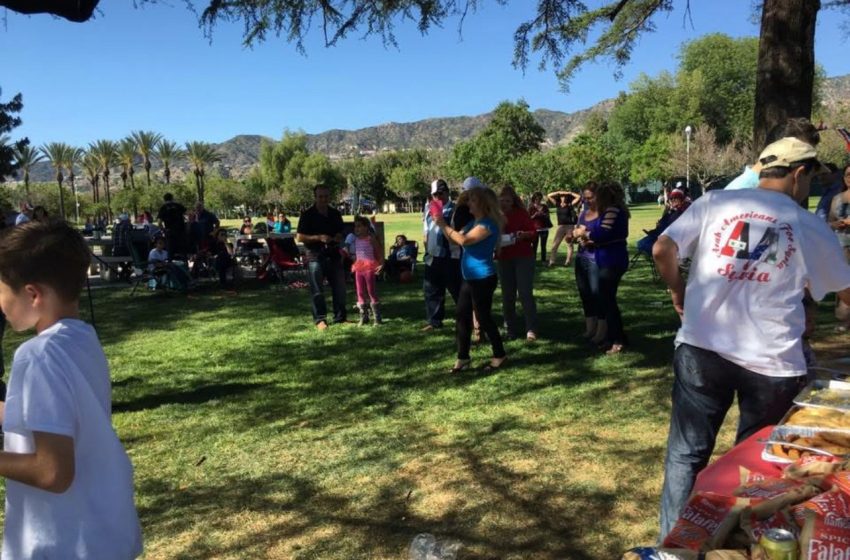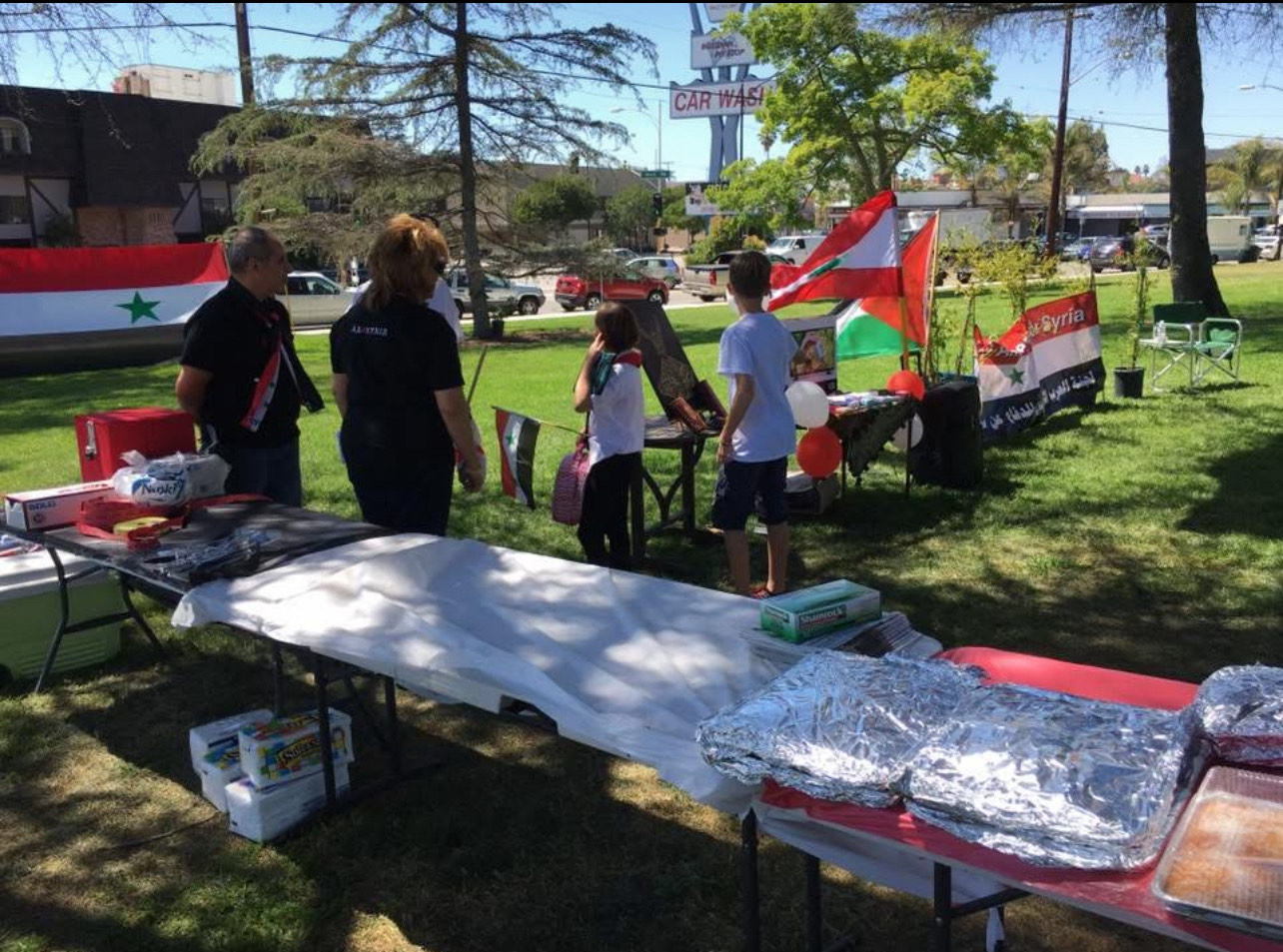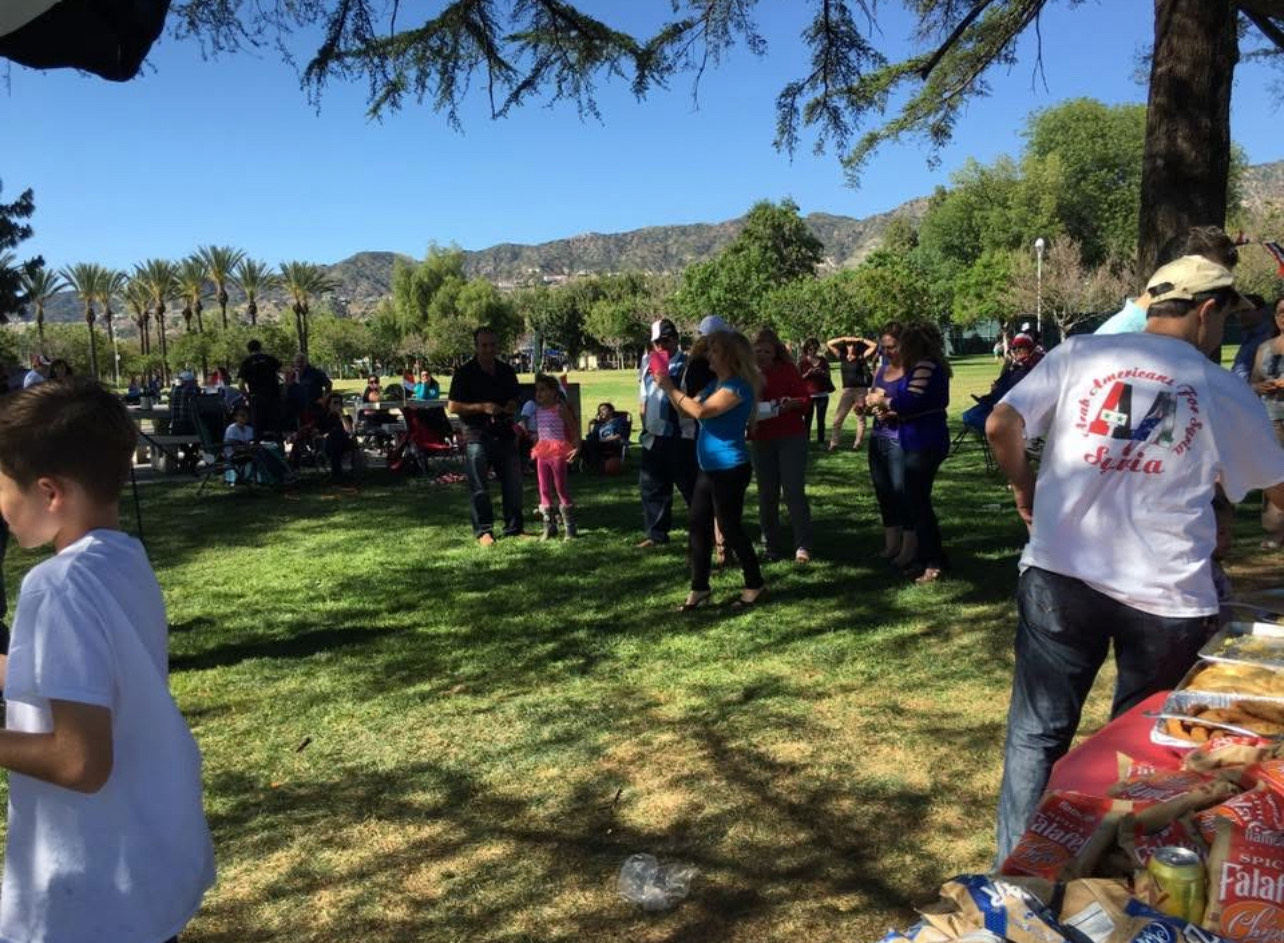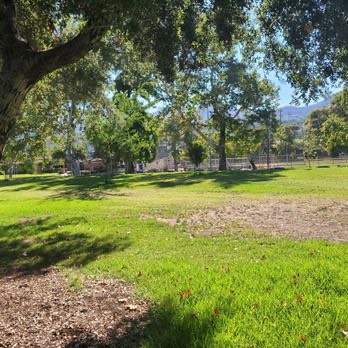“We Made It Our Own”: How Arab American Families Turn Verdugo Park into a Living Memory

Fatmeh Bakhit | Al Enteshar Newspaper
May 29, 2025
“Did you park on the street? You’ll get boxed in, just warning you,” says a man in a Dodgers cap, waving someone away from a crowded curb as he unloads bags of ice from his trunk.
The smell of grilled meat drifts through the air before you see the charcoal. Kids squeal and run through the trees, while parents trail behind them with coolers, tarps, and containers full of food. The basketball court is occupied, but no one seems to mind. There’s space for everyone.
At Verdugo Park in Burbank, you don’t need a reservation to find community. You just show up.
Nestled into the edge of the Verdugo Mountains and shaded by sycamores and coast live oaks, the park has long been a weekend mainstay for locals. But in recent years, it’s taken on a particular meaning for Southern California’s Arab American and Muslim families.
For some, like 26-year-old Hana Al-Jabri, it’s where a childhood happened. For others, like Ismail Rahman, it is where a culture survived.
“My Life Is Mapped Here”
We meet Hana mid-afternoon, leaning against a picnic table near the lower playground. A pair of toddlers runs past her, one of them wearing a faded “Palestine” jersey that looks two sizes too big.
“I’ve lost count of how many birthdays, potlucks, and Ramadan nights we’ve had in this park,” she says, laughing. “My life is kind of mapped here.”
Hana’s family, originally from Iraq, settled in the San Fernando Valley in the early 2000s. Without a big backyard or a formal community center nearby, Verdugo Park became their shared space, backyard, event hall, and public square.
She walks us down a path toward the old barbecue pits, pointing out memories like landmarks. “That’s where my dad taught me how to shoot hoops. That’s where my cousin gave a whole speech when she got into med school. And that little patch over there is where my fiancé proposed,” she adds with a grin.
But it wasn’t just what happened at Verdugo. It was what the space allowed.
“It gave us room. Space to just exist as an Arab family without feeling out of place,” Hana said. “The park didn’t belong to us on paper, but we made it our own.”
Making Syria Visible in Burbank
If Hana’s memories are rooted in childhood, Ismail Rahman’s relationship with the park began as an act of cultural restoration.
When he and his wife arrived in Burbank from Aleppo in 2014, they were still reeling from the trauma of war. With no extended family nearby and few community connections, they felt adrift. Until one Sunday afternoon, someone from the mosque invited them to a picnic at Verdugo Park.
“That day felt like breathing again,” Ismail said. “It was just a picnic. But it was also a gathering of people who had been through loss, through distance. And yet there we were, grilling meat, sharing food, laughing. Like we hadn’t lost anything.”
That one gathering grew into an annual tradition. Each spring, a growing group of Syrian families comes together at Verdugo to celebrate their heritage. They cook together: mansaf, kibbeh, and grape leaves. They hang up handmade decorations, play oud music, and teach children Arabic songs their parents once sang to them.
Last year, a group of teenage boys organized an impromptu dabke circle that drew in spectators from neighboring parkgoers. “A couple of Latino families joined in,” Ismail recalled, smiling. “One guy asked if this was a wedding. I said no, it’s just Tuesday for us.” He laughs
What might seem small, some music, a potluck, or a dance is, for Ismail, a cultural act.
“We don’t have statues or museums here for our stories,” he said. “But we have the park. And we fill it with our language, our food, our songs. That’s how we stay visible.”
Ordinary Belonging
For both Ismail and Hana, what makes Verdugo Park powerful isn’t a single moment, it’s the slow layering of everyday use.
It’s the families who gather during Ramadan to break their fasts under the trees. It’s the teenage girls who come after Friday prayer in sneakers and hijabs, sitting on the swings talking about college. It’s the uncles arguing over who forgot the tahini.
“There’s nothing revolutionary about a park,” Hana said, watching a mother spread out a patterned blanket. “But for a lot of us, public space hasn’t always felt like it was ours. So when you find a place where you don’t have to explain yourself, where you can just be, that stays with you.”
As afternoon fades into golden light, Ismail watches the sky thoughtfully. “We used to say, in Syria, that the best memories are made in places where you didn’t plan them. That’s what this park is now for all of us.”





